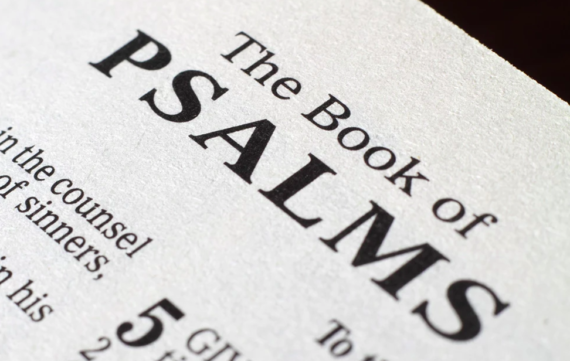This psalm addresses a problem that has concerned godly people through the ages. Why is it that the wicked often prosper while the righteous suffer? Why is it that the ungodly are often successful while the godly fail?
Some years ago, Muammar Gaddafi dedicated a Mosque begun by Idi Amin. Why are such men allowed to live comfortably, and even to have monuments erected in their honour.
This is not a question we can ignore. This question has brought many a believer to the brink of disaster. Envy of the wicked has nearly caused this writer to fall.






But as for me, my feet had almost stumbled, my steps had nearly slipped. 3 For I was envious of the arrogant when I saw the prosperity of the wicked (2-3).
He has almost concluded that it is vain to do what is right (13). He has been rebuked for what is right.
All in vain have I kept my heart clean and washed my hands in innocence. 14 For all the day long I have been stricken and rebuked every morning (13-14).
Particularly troubling to him is the sight of those who do wrong being honoured even as they mock God.
They set their mouths against the heavens, and their tongue struts through the earth. 10 Therefore his people turn back to them, and find no fault in them (9-11).
The question also troubled Job (Job 21:7, 30). The teacher of wisdom complains of it (Eccl 7:15). Another psalm reminds us of the danger that people might even take the law into their own hands in frustration at the sight of such injustice (Ps 125:3).
Let us note three principles here for understanding this difficulty.
Eternity
First, reflection on the brevity of life is of some value in facing this. Powerful in their time, the wicked do not last forever. Gaddafi and Amin are both dead now. And death is full of terror for the wicked. Their plans will not succeed long-term. Truly, God sets them in slippery places, and they fall to their ruin (18).
But Job, for one, was dissatisfied with this response. We may be dissatisfied with it as well. Job replied in effect, “No, make it happen now, not some day in the future” (Job 21:19-21).
With our eyes on the wicked, we will continue to be dissatisfied. It may be that the envy they cause in our hearts is the most damaging fruit of their evil. To speak the kinds of thoughts we think when reflecting on the wicked is to speak untruly and to betray God’s children (15, 21-22). There may be some value in reflection on this issue. But in the end it is a wearisome task (16).
Worship
A better answer was found in worship.
But when I thought how to understand this, it seemed to me a wearisome task, 17 until I went into the sanctuary of God; then I discerned their end (16-17).
We were created for worship (Isa 43:21; Phil 1:10; Matt 5:16; 1 Pet 2:9; 4:10-11). Many things in life cannot be understood except in the context of fulfilling our purpose. In worship, we cease to be “beasts” in our relation to God (22) and begin to properly fulfil our purpose. In worship, we are reminded of the many blessings we have, rather than being distracted by the many things we do not have. We have God’s presence in worship (23). We have his guidance (24a). We have a future hope (24b).
In worship, our attention is drawn away from the wicked, and away from ourselves, to the one who makes the concept of eternity bearable (25-26). To be near God, having the opportunity to praise him, this is our true purpose, need, and greatest blessing (28).
Our limitations
Finally, we must face this issue with an awareness of our limitations.
This writer is certainly honest about his limitations, his moments of doubt, his wrong thinking (13, 21-22). Weiser commenting on verse 23 says, “The poet does not spare himself, but frankly speaks of his shame. Genuine faith can only endure in an atmosphere of truthfulness, and ultimate truth becomes manifest only through faith.” (513)
Other scriptures tell us that there will be things that are not explained in this life (Dt 29:29; Mt 24:36; 2 Cor 12:3-4). Again, Weiser has a helpful thought, “He allows the divine mystery to remain a mystery and does not presume irreverently to push open the gate which God still keeps closed. This, too, is an essential mark of his faith.” (515)
If the problem of evil at times stumps you, you are in very good company. Many great saints have been stumped by it. We will never fully understand, but what we seek in Christ is not omniscience for ourselves, but the presence of God.
Whom have I in heaven but you? And there is nothing on earth that I desire besides you. 26 My flesh and my heart may fail, but God is the strength of my heart and my portion forever. 27 For behold, those who are far from you shall perish; you put an end to everyone who is unfaithful to you. 28 But for me it is good to be near God; I have made the Lord God my refuge, that I may tell of all your works (25-27).

